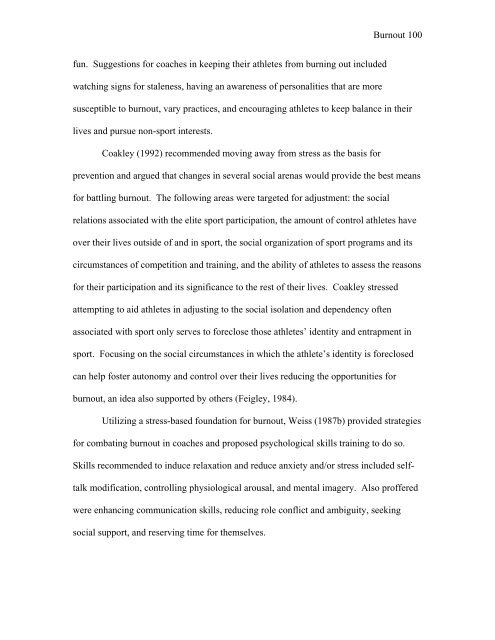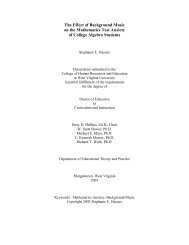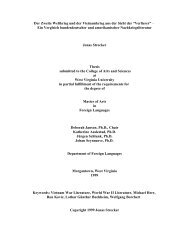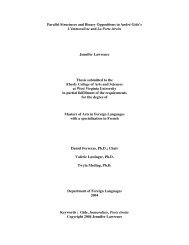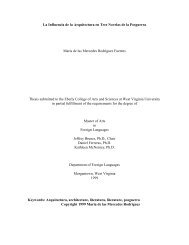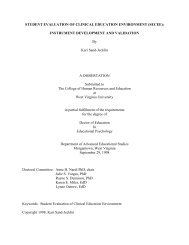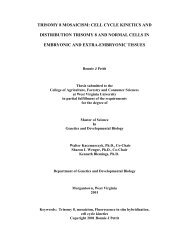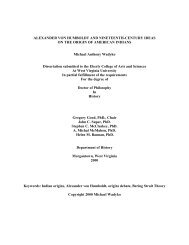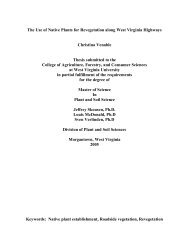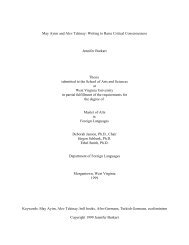Coach and Athlete Burnout - West Virginia University
Coach and Athlete Burnout - West Virginia University
Coach and Athlete Burnout - West Virginia University
You also want an ePaper? Increase the reach of your titles
YUMPU automatically turns print PDFs into web optimized ePapers that Google loves.
fun. Suggestions for coaches in keeping their athletes from burning out included<br />
watching signs for staleness, having an awareness of personalities that are more<br />
<strong>Burnout</strong> 100<br />
susceptible to burnout, vary practices, <strong>and</strong> encouraging athletes to keep balance in their<br />
lives <strong>and</strong> pursue non-sport interests.<br />
Coakley (1992) recommended moving away from stress as the basis for<br />
prevention <strong>and</strong> argued that changes in several social arenas would provide the best means<br />
for battling burnout. The following areas were targeted for adjustment: the social<br />
relations associated with the elite sport participation, the amount of control athletes have<br />
over their lives outside of <strong>and</strong> in sport, the social organization of sport programs <strong>and</strong> its<br />
circumstances of competition <strong>and</strong> training, <strong>and</strong> the ability of athletes to assess the reasons<br />
for their participation <strong>and</strong> its significance to the rest of their lives. Coakley stressed<br />
attempting to aid athletes in adjusting to the social isolation <strong>and</strong> dependency often<br />
associated with sport only serves to foreclose those athletes’ identity <strong>and</strong> entrapment in<br />
sport. Focusing on the social circumstances in which the athlete’s identity is foreclosed<br />
can help foster autonomy <strong>and</strong> control over their lives reducing the opportunities for<br />
burnout, an idea also supported by others (Feigley, 1984).<br />
Utilizing a stress-based foundation for burnout, Weiss (1987b) provided strategies<br />
for combating burnout in coaches <strong>and</strong> proposed psychological skills training to do so.<br />
Skills recommended to induce relaxation <strong>and</strong> reduce anxiety <strong>and</strong>/or stress included self-<br />
talk modification, controlling physiological arousal, <strong>and</strong> mental imagery. Also proffered<br />
were enhancing communication skills, reducing role conflict <strong>and</strong> ambiguity, seeking<br />
social support, <strong>and</strong> reserving time for themselves.


